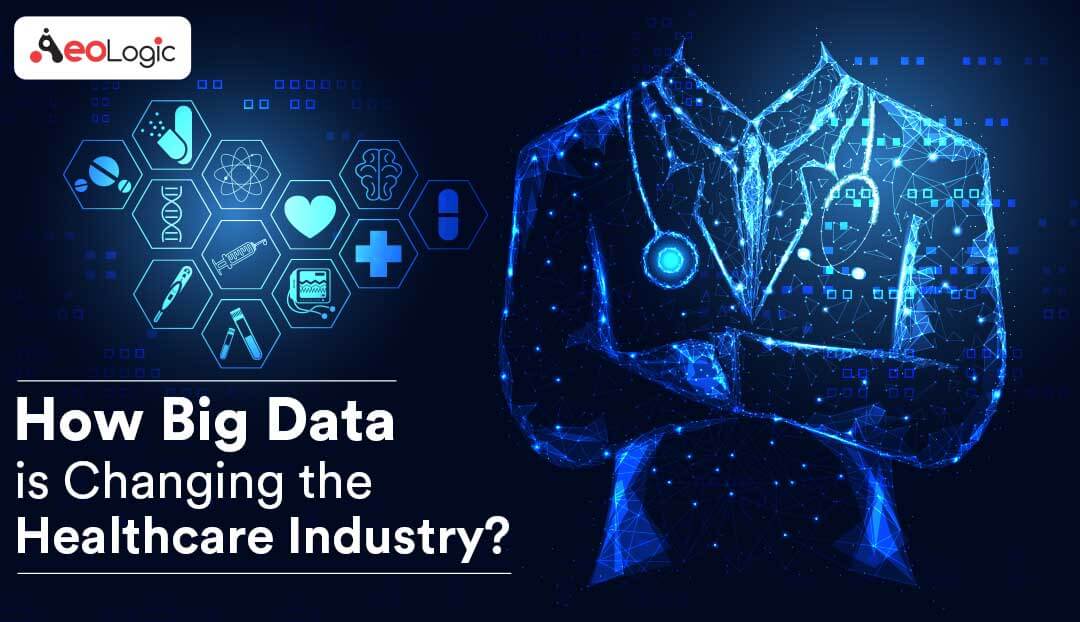If you want to find how Big Data is changing lives and making the world a better place, there’s no better example than uses being found for it in Healthcare.
The amount of data we routinely generate and collect in pretty much everything we do has greatly increased in the last 10 years. And not just that, our ability to use technology to analyze and understand it has increased as well. “Big data” is the intersection of these trends, and is making businesses in every industry more and more efficient and productive. Healthcare is no different. Role of Big Data in healthcare is being used to save the lives of larger masses by predict epidemics, cure complex diseases, and improves the quality of life.
Thousands of hospitals, private practices, universities, and pharmaceutical labs are constantly working to improve patients’ lives and identify innovative healthcare opportunities…and it’s all resulting in petabytes of data.
Data from patient studies, data from health records, even data from medical devices — all collected, analyzed and used to make daily breakthroughs in diagnostics, medicine, and patient care.
So, to understand the journey of Big Data in Healthcare, let’s go back to start — Before we even fall sick.
What is Big Data in Healthcare
Big Data in healthcare refers to collecting, analyzing, and leveraging patient’s clinical and physical data that is too complex for the traditional data processing tools to understand. Instead, Data scientists and Machine Learning is used to process big data.
And what it does is, that with the use of big data, doctors can now get all details of a patient’s health and their medical history. Which in turn makes the doctors treat the diseases at an earlier stage and at a comparatively lesser expense.
Role Big Data in Healthcare Industry
The following are just a few role big data in healthcare industry. Which one are you most intrigued by?
Improved Diagnosis
One of the greatest challenges to diagnostics is proper and timely disease identification. Early detection and differentiation, as well as improved care, is possible with big data technology that offers tools like predictive analytics. Data mining and analysis help to identify the cause of illnesses and reduce life-changing or life-shortening consequences.
Clinical Trials
When you’re not feeling well and need medication prescribed to you, chances are the medication you receive will be chosen with the help of Big Data. You see, there are thousands of clinical trials that take place all across the world. In these trials, medical professionals are able to study the side effects and benefits of certain medications. In fact, data-sharing between pharmaceutical giants is what has made it possible to have huge health breakthroughs in the way depression is handled and the way cancer is treated.
Efficient Medical Imaging
Storage of medical imaging documents is costly, while their examination is tedious and relies on highly skilled professionals. Big data facilitates physicians to make a more precise diagnosis of the patient’s disease by identifying specific patterns and offering specific outputs. Machine learning algorithms help save both time and money by analyzing a vast number of medical images at an exponential rate.
Privacy and Security
Patient’s medical history, medications, diagnosis, are the most important data for any hospital, and assuring to maintain the privacy of this information and keeping them secure is the biggest responsibility of a healthcare institution.
Cyber threats in healthcare are so prevalent today that thieves reportedly earn more money from stolen health data than by pilfering credit card details.
The centralization of medical data has become the growing trend, which will cause concern, but considering privacy and security of the system can be maintained, it is definitely going to play a huge role in the development of new treatments and add to our growing understanding of our bodies, and how we can make sure they carry on working as long as possible.
Conclusion
Big data analytics has the potential to change the way healthcare providers use sophisticated technologies and get insight from their clinical and other data repositories and make effective decisions.
While big data is already revolutionizing healthcare, manufacturing, Media, and Entertainment, there still are many organizations that are not sure how to adopt the change due to the many challenges such as privacy, security, and costs. Nonetheless, the opportunities and potential of adopting solutions are both available and accessible.
Feel free to connect with us.
At AeoLogic Technologies, We combine our market research expertise across an array of technologies that help in building a better future. We’ve been carrying out qualitative and quantitative research projects for our clients for several years, establishing ourselves as the gold standard in reliable technical research.

Manoj Kumar is a seasoned Digital Marketing Manager and passionate Tech Blogger with deep expertise in SEO, AI trends, and emerging digital technologies. He writes about innovative solutions that drive growth and transformation across industry.
Featured on – YOURSTORY | TECHSLING | ELEARNINGINDUSTRY | DATASCIENCECENTRAL | TIMESOFINDIA | MEDIUM | DATAFLOQ








